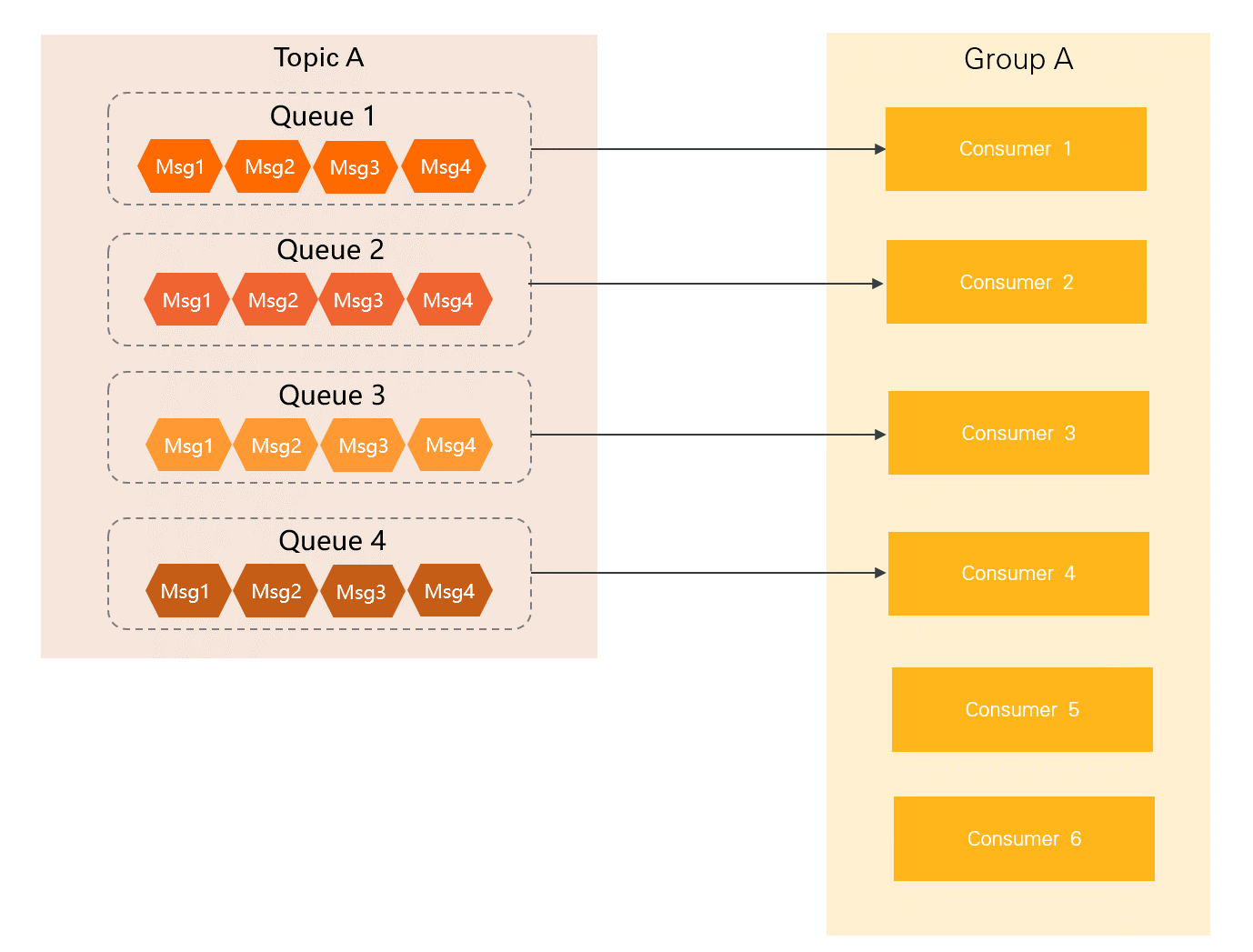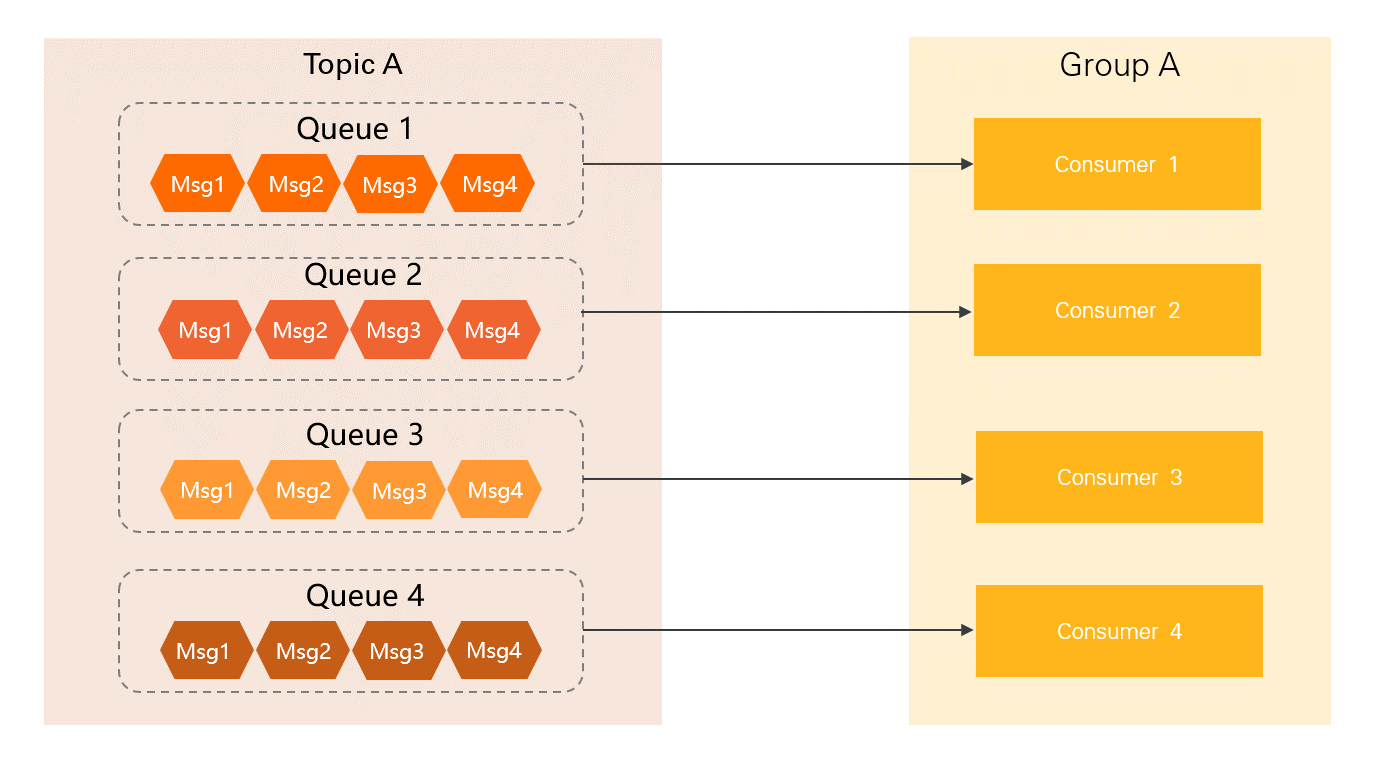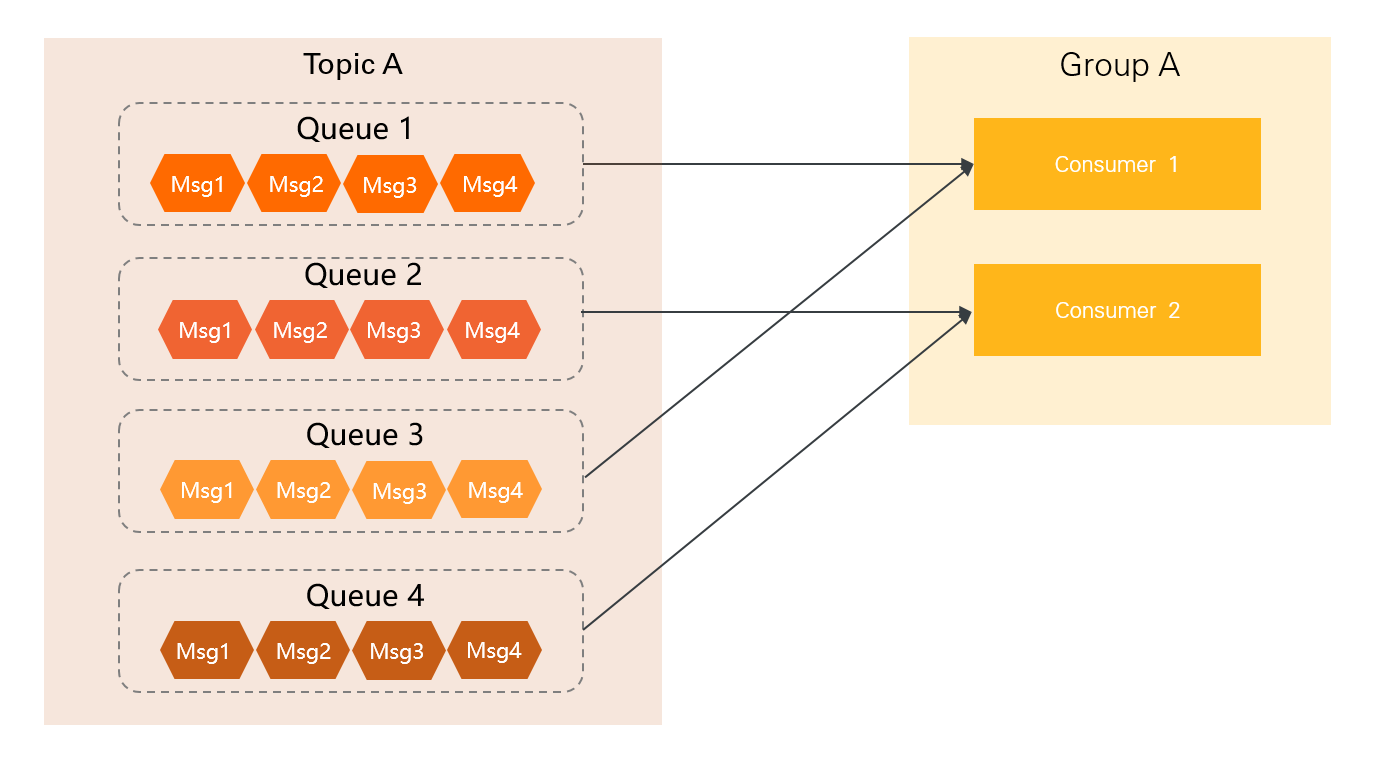ApsaraMQ for RocketMQ uses different load balancing policies for producers and consumers. For consumers, the load balancing policy affects message accumulation.
Background information
In ApsaraMQ for RocketMQ, the load balancing policies are optimized based on the updates of the client SDKs. The following load balancing policies are available:
Load balancing policies compatible with the SDK for Java V2.x.x.Final and the SDK for C++ V3.x.x
Prerequisites
TCP client SDK for Java:
The TCP client SDK for Java is upgraded to V2.x.x.Final.
The instance must be deployed in one of the following regions: China (Hangzhou), China (Qingdao), China (Beijing), China (Zhangjiakou), China (Hohhot), China (Shenzhen), China (Chengdu), Germany (Frankfurt), and Indonesia (Jakarta).
TCP client SDK for C++:
The TCP client SDK for C++ is upgraded to V3.x.x.
The instance can be deployed in any region.
Benefits
The load balancing policies that are compatible with the SDK for Java V2.x.x.Final and the SDK for C++ V3.x.x provide the following benefits:
Consumers can consume messages in a flexible manner. Consumers no longer consume messages based on queues. Messages in the same queue can be consumed by multiple consumers.
When the number of consumers exceeds the number of queues, no consumers remain idle. This helps avoid waste of resources.
Load balancing policy for producers
For unordered messages, producers send messages to queues in round-robin mode. Unordered messages are normal messages, transactional messages, scheduled messages, and delayed messages. The following figure shows an example.
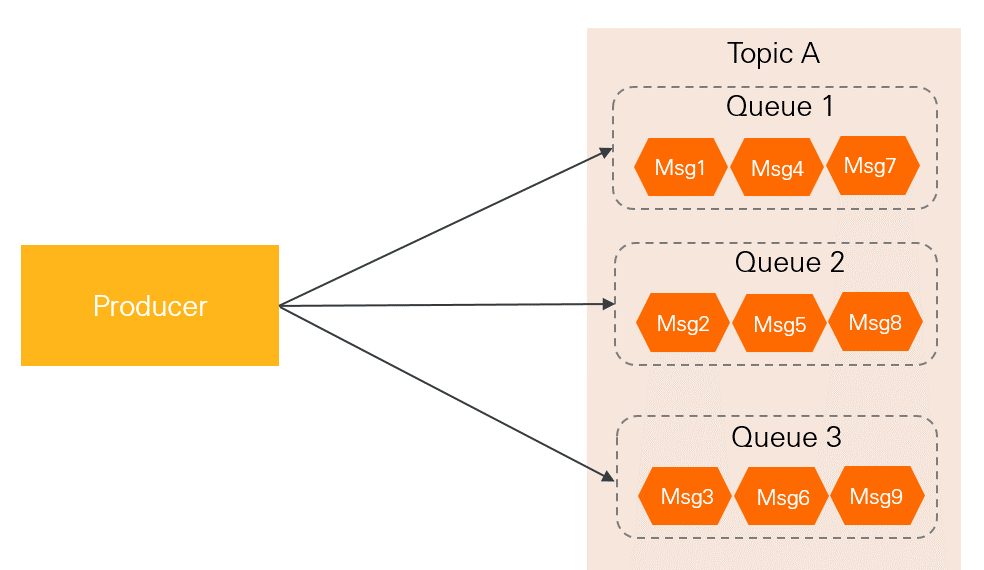
In the preceding figure, three queues are available, and the numbers that follow "Msg" indicate the sequence of messages. The producer sends the first message to Queue 1, the second message to Queue 2, the third message to Queue 3, the fourth message to Queue 1, and subsequent messages in the same sequence.
For ordered messages, producers send messages that have the same shard key to the same queue. The following figure shows an example.
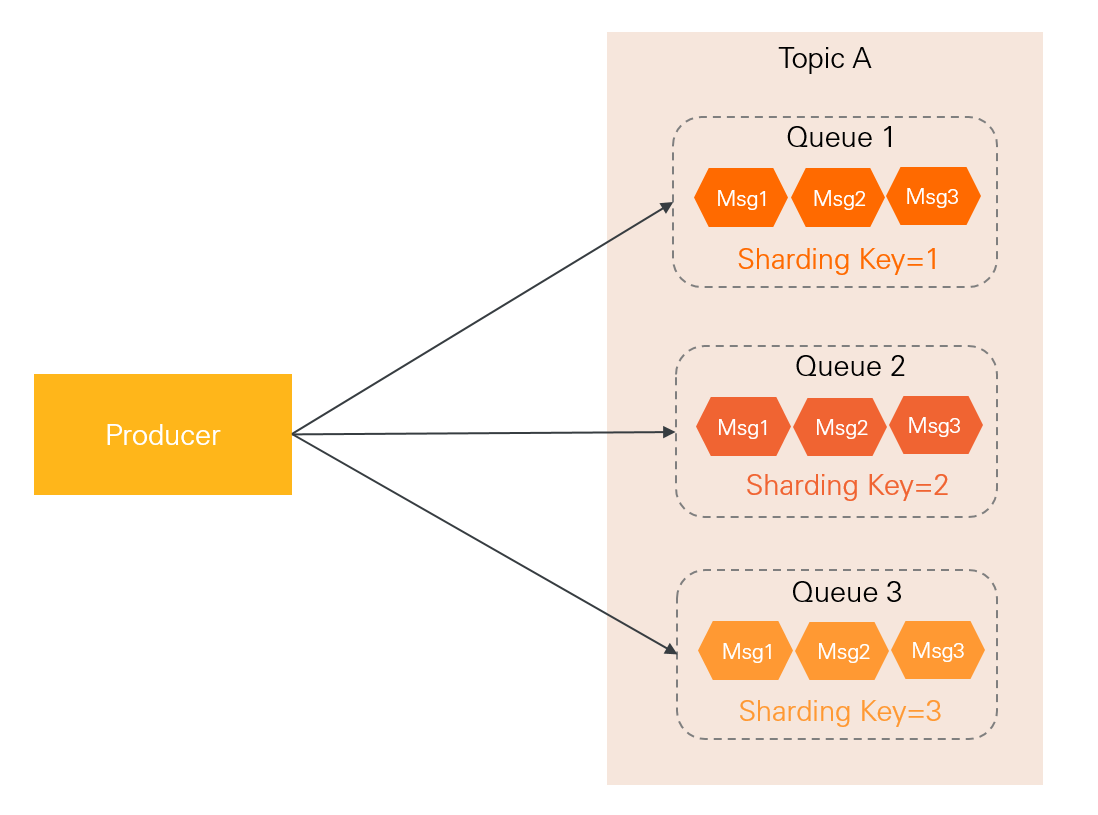
In the preceding figure, the producer sends all messages whose shard key is 1 to Queue 1 and all messages whose shard key is 2 to Queue 2.
Load balancing policy for consumers
For unordered messages, ApsaraMQ for RocketMQ brokers evenly distribute all messages in a topic to multiple consumers in a group.
If the SDK for Java V2.x.x.Final or the SDK for C++ V3.x.x is used to consume messages, load balancing is no longer performed based on queues. Messages in the same queue can be consumed by multiple consumers. The following figure shows an example.
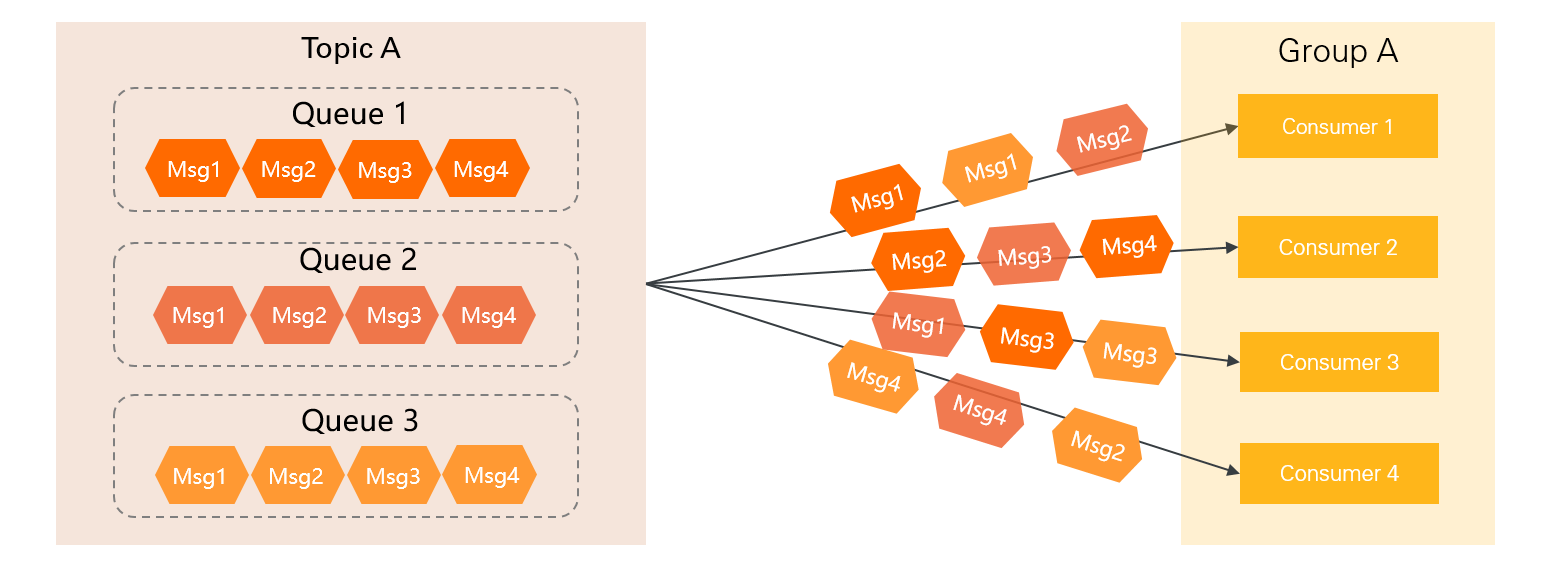
In the preceding figure, multiple messages in each queue can be consumed by different consumers at the same time. For example, four messages in Queue 2 are distributed to Consumer 1, Consumer 2, Consumer 3, and Consumer 4 for consumption.
For ordered messages, ApsaraMQ forRocketMQ loads balance messages based on sharding keys. Messages that have different sharding keys can be load balanced to multiple queues for consumption. Messages that have the same sharding key are sent to the same consumer. This ensures that messages can be consumed in the order in which they are produced. The following figure shows an example.
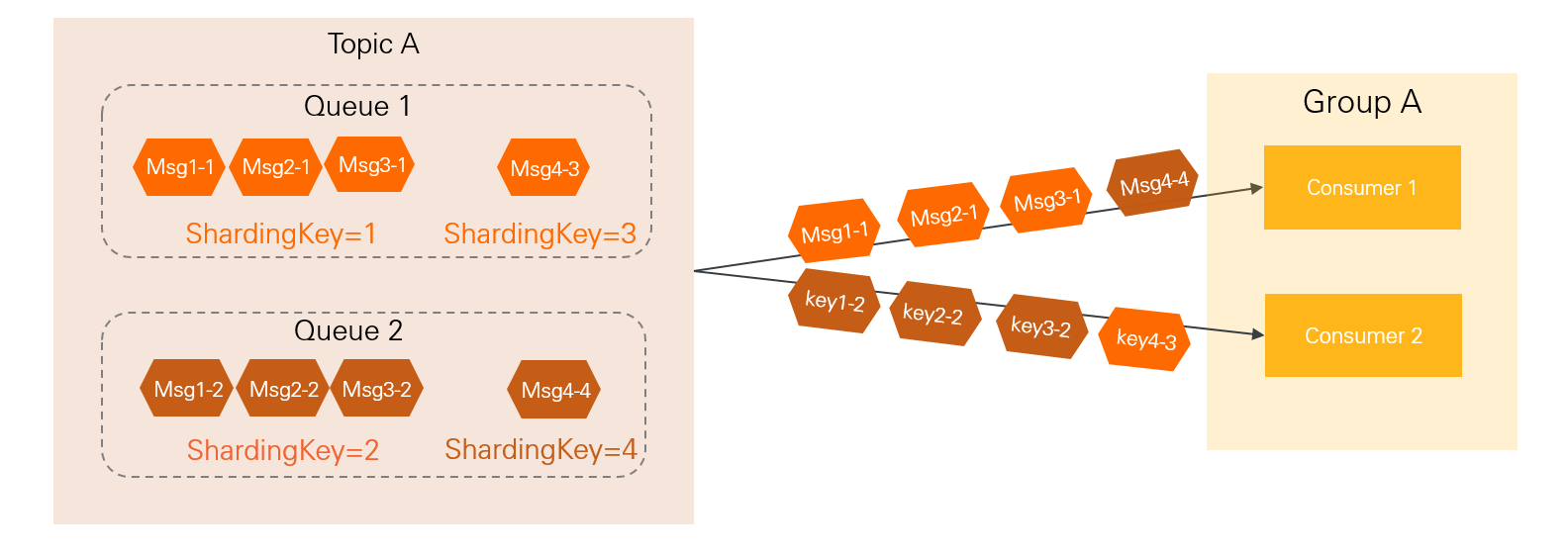 Note
Note : Messages with this background color belong to Queue 1. Msg2-1 indicates that the message is the second message in Queue 1 and that the sharding key of the message is 1.
: Messages with this background color belong to Queue 1. Msg2-1 indicates that the message is the second message in Queue 1 and that the sharding key of the message is 1.  : Messages with this background color belong to Queue 2. Msg3-2 indicates that the message is the third message in Queue 2 and that the sharding key of the message is 2.
: Messages with this background color belong to Queue 2. Msg3-2 indicates that the message is the third message in Queue 2 and that the sharding key of the message is 2.
In the preceding figure, Msg1-1, Msg2-1, and Msg3-1 are all consumed by Consumer 1 because these messages have the same sharding key 1. Likewise, the messages whose sharding key is 2 are all consumed by Consumer 2.
Msg4-3 and Msg4-4 are distributed to different consumers for consumption because their sharding keys are different.
